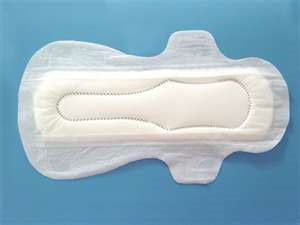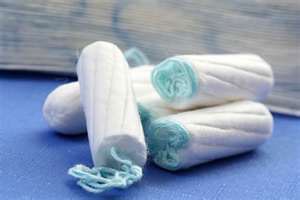Teens use tampons and pads when they started to have menstrual flow and need to use pads and tampons to absorb the menstrual blood/periods. To make things easier, the following table will describe differences between tampons and pads.
| PADS | TAMPONS |
 |
 |
| What is it? | |
| Pads/sanitary pads or sanitary napkins are rectangles absorbent material that stick to the inside of your underwear that will absorb menstrual blood. Some pads have extra material on the sides (wings) which will prevent leakage when folded over the edges of the underwear. | Tampons are cylindrical in shape also made of absorbent material to absorb menstrual blood. Tampons have a string attached to one end that stay outside the vagina opening and can be used to remove the tampon. It works by inserting it into the vaginal opening resting it in the vaginal canal to absorb menstrual blood. You can insert it by using your finger or by using a plastic or cardboard applicator. The applicator will help you insert the tampons correctly. |
| Does it comes in different size? | |
| Pads come in different sizes for heavier and lighter periods. | Tampons come in different sizes for lighter and heavier periods. |
| How frequent you should change it? | |
| It depends on your menstrual flow. If your period is heavy you should change pads more often before it get saturated and overflow. It is recommended that you change pads at least every 3-4 hours even if the flow is light. | Tampons will absorbed menstrual blood within your vagina and making it very difficult to overflow. If you always check the string doesn’t turned red with blood then you are less likely to experience leakage. It is recommended that you change tampons at least every 3-4 hours even if the flow is light. If not, bacteria can grow and cause an infection. You also might notice an odor. Leaving a tampon in too long also increases your risk of a serious illness called toxic shock syndrome. |
| How do I dispose it? | |
| Wrap it in a toilet paper and put it the trash bin or special disposal box if available. Don’t flush it down the toilet and it may clogged the system! | Wrap it in a toilet paper and put it the trash bin or special disposal box if available. Don’t flush it down the toilet and it may also clogged the system! |
| Should I use scented pads or tampons? | |
| Scented pads can cause irritation and usually any odor arise is mild and not offensive. If you notice any offensive odor it is recommended that you consult a doctor. | Scented tampons can cause irritation in your vagina and usually any odor arise is mild and not offensive. If you notice any offensive odor it is recommended that you consult a doctor. |
| What are the benefits of using pads or tampons? | |
| Easy to use and it is easier to change the pad since you can see them getting soaked. Risk of infections also less as compared to tampons | Tampons is suitable for active teens, you can go swimming and be active in sports because it can’t be felt as it is inside the body. You are not worried of blood leakage and embarrassment |
| What are the limitations of using pads or tampons? | |
| Pads are made with cotton plus synthetic materials that can lead to allergic reaction for some teens and create unnecessary environmental waste. Pads are harder to dispose and can be messy sometimes especially when overflow and leakage that lead to embarrassment. | Tampons are smaller than pads and easier to dispose but putting them can be a challenge. Teens who use very absorbent tampons are most at risk for Toxic Shock Syndrome (TSS). TSS is a potentially fatal illness caused by a bacterial toxin. This can occur especially if the tampons were kept in vagina for a long time, giving the bacteria plenty of time to grow. These bacteria can grow within the tampon. The bacteria can enter the body from inside the vagina, then invade the bloodstream, releasing toxins that can cause a very severe, and occasionally life-threatening illness. Teens with TSS will present with high fever, vomiting or diarrhea, severe muscle aches, feeling weak or dizzy and have rashes. If this occurs seek medical help IMMEDIATELY. It’s very important that you change your tampon every few hours, even if your period is light. |
References:
| Last Reviewed | : | 20 Nov 2015 |
| Writer | : | Dr. Wan Fadhilah bt. Wan Ismail |
| Accreditor | : | Dr. Norizzati Bukhary binti Ismail Bukhary |







